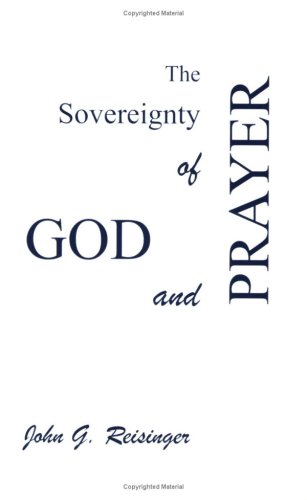Quotes about Prayer-Persistence
Importunate praying is the earnest inward movement of the heart toward God.
There is no power like that of prevailing prayer, of Abraham pleading for Sodom, Jacob wrestling in the stillness of the night, Moses standing in the breach, Hannah intoxicated with sorrow, David heartbroken with remorse and grief, Jesus in sweat of blood. Add to this list from the records of the church your personal observation and experience, and always there is the cost of passion unto blood. Such prayer prevails. It turns ordinary mortals into men of power. It brings power. It brings fire. It brings rain. It brings life. It brings God.
It is very apparent from the Word of God that He often tries the faith and patience of His people, when they are crying to Him for some great and important mercy, by withholding the mercy sought for a season; and not only so, but at first He may cause an increase of dark appearances. And yet He, without fail, at last prospers those who continue urgently in prayer with all perseverance and “will not let him go except He blesses.”
Battles are won or lost on the field of prayer, but even prayer can be a battle.
We prevail with men by impudence because they are displeased with it, but with God because he is pleased with it.
Some people think God does not like to be troubled with our constant coming and asking. The way to trouble God is not to come at all.
Suppose that we believers in the Lord Jesus make our requests to God. Suppose also that, as far as we can honestly judge, the obtaining of our requests would be for our spiritual good and for the honor of God. We must then continue in prayer until the blessing is given to us. Furthermore, we have to believe that God does hear us and will answer our prayers. Frequently we fail in not continuing in prayer until the blessing is obtained and in not expecting the blessing. As assuredly as any individual uses these points, so assuredly will his requests be granted.
The Autobiography of George Muller, 1984, p. 219. All quotations taken from books published by Whitaker House are used with permission of the publisher. Whitaker House books are available at Christian bookstores everywhere.
It is not enough to begin to pray, nor to pray aright; nor is it enough to continue for a time to pray; but we must patiently, believingly, continue in prayer until we obtain an answer; and further we have not only to continue in prayer unto the end, but we have also to believe that God does hear us, and will answer our prayers. Most frequently we fail in not continuing in prayer until the blessing is obtained, and in not expecting the blessing.
Jesus is teaching us to pray impudent, nervy prayers, because that’s when we get serious with God. He likes that, and doors start opening up… Do we have the nerve to ask God for what we really long for and what would really display His glory? Let’s not settle for polite prayers that bore us and change nothing.
George Muller observed, “The great fault of the children of God is, they do not continue in prayer; they do not go on praying; they do not persevere. If they desire anything for God’s glory, they should pray until they get it” (Roger Steer).
Praying without ceasing means at least three things. First it means that there is a spirit of dependence that should permeate all we do… So even when we are not speaking consciously to God, there is a deep, abiding dependence on Him that is woven in to the heart of faith. Second… [it] means praying repeatedly and often. Third, [it] means not giving up on prayer. Don’t ever come to a point in your life where you cease to pray at all.
Summarized from: The Practice of Prayer in the Fight for Joy by John Piper taken from When I Don’t Desire God by John Piper, copyright 2004, Crossway Books, a division of Good News Publishers, Wheaton Illinois 60187, www.crosswaybooks.org. Page 157.
We are sometimes tempted to think that we get no good by our prayers, and that we may as well give them up altogether. Let us resist the temptation. It comes from the devil. Let us believe, and pray on. Against our besetting sins, against the spirit of the world, against the wiles of the devil, let us pray on, and not faint. For strength to do duty, for grace to bear our trials, for comfort in every trouble, let us continue in prayer. Let us be sure that no time is so well-spent in every day, as that which we spend upon our knees. Jesus hears us, and in His own good time will give an answer… He may sometimes keep us long waiting…but He will never send us empty away.
Do not be afraid, dear children of God, you that have fallen into a mournful state, do not be afraid to cry out to God. I know we sometimes feel as if we must not and dare not pray. We have become so dull, so lifeless, so unworthy, that we do not expect to be heard, and feel as if it would be presumption to cry. But our heavenly Father loves to hear his children cry all day long… If you can cry out to Jesus, he will joyfully hear you. If you will give him no rest, he will give you all the rest you need. The Lord finds music in his children’s cries.
In prayer we do not “prevail on” God, but rather prevail on ourselves to submit to God. True, the language of “prevailing on God” is often used in regard to prayer, but it is an accommodation to human weakness. Even when Jacob “prevailed on God,” what really happened is that God prevailed over him, bringing him to the point of surrender when he was able to receive the blessing which God had all the time been longing to give Him
Perseverance in prayer is not overcoming God’s reluctance but rather laying hold of God’s willingness. Our sovereign God has purposed to sometimes require persevering prayer as the means to accomplish His will.
A Journey to Victorious Praying, Moody Publishers, 2003, p. 189-190.
Get this book!
Why has God chosen to work through persevering prayer? 1. To purify our desires. Sometimes we may want the right thing for the wrong reasons. 2. To prepare us for His answer. A premature answer might cause us to glory more in the gift than in the Giver. 3. To develop our life and character. We have already stated that one of God’s greatest priorities in prayer is the work He desires to do in us. 4. To be used of God in spiritual warfare. Although we are not told a great bit of detail about the exact nature of the angelic conflict in the heavenlies, we are told enough to be assured of the reality of it. 5. To bless us with a more intimate relationship with God. An aspect of delighting in a person is delighting in conversing with them. The joy of fellowship with a prized person is the greatest treasure.
A Journey to Victorious Praying, Moody Publishers, 2003, p. 190-191.
Get this book!
There is a difference between a fleshly stubbornness and a godly perseverance. The former insists on getting one’s will done in heaven, and the latter determines to get God’s will done on earth.
A Journey to Victorious Praying, Moody Publishers, 2003, p. 192-193.
Get this book!
Aids to persevering intercession: appeal to God’s attributes (Psalms 51:1), appeal to God’s promises (Genesis 32:9-12), appeal to God’s honor or reputation (Exodus 32:12; Psalm 25;11; Psalm 115:1), appeal to the need of God’s people (Exodus 14:10; Psalm 86:1), appeal to God’s past action (Psalm 4:1), appeal to our union with Christ (Romans 15:30), appeal to the truth that God may be known (Exodus 33:13).
A Journey to Victorious Praying, Moody Publishers, 2003, p. 194.
Get this book!
Asking with shameless persistence, the importunity that will not be denied, returns with the answer in hand.
Persistent prayer is an enduring evidence of faith.
Storm the throne of grace and persevere therein, and mercy will come down.
Sometimes a failure to persist in prayer proves that we were not serious about our request in the first place. At other times God wants us to persist in prayer in order to strengthen our faith in Him. Faith would never grow if all prayers were answered immediately. Persistent prayer tends to develop deeper gratitude as well. As the joy of a baby’s birth is greater because of the months of anticipation, so is the joy of an answer to prayer after persistent praying. And as much as a generation that measures time in nanoseconds hates to admit its need for it, God crafts Christlike patience in us when He requires persistence in prayer.
Spiritual Disciplines for the Christian Life, 1991, p. 81, Used by permission of NavPress – www.navpress.com, All rights reserved. For more information please see the website www.BibicalSpirituality.org. Get this book!





















